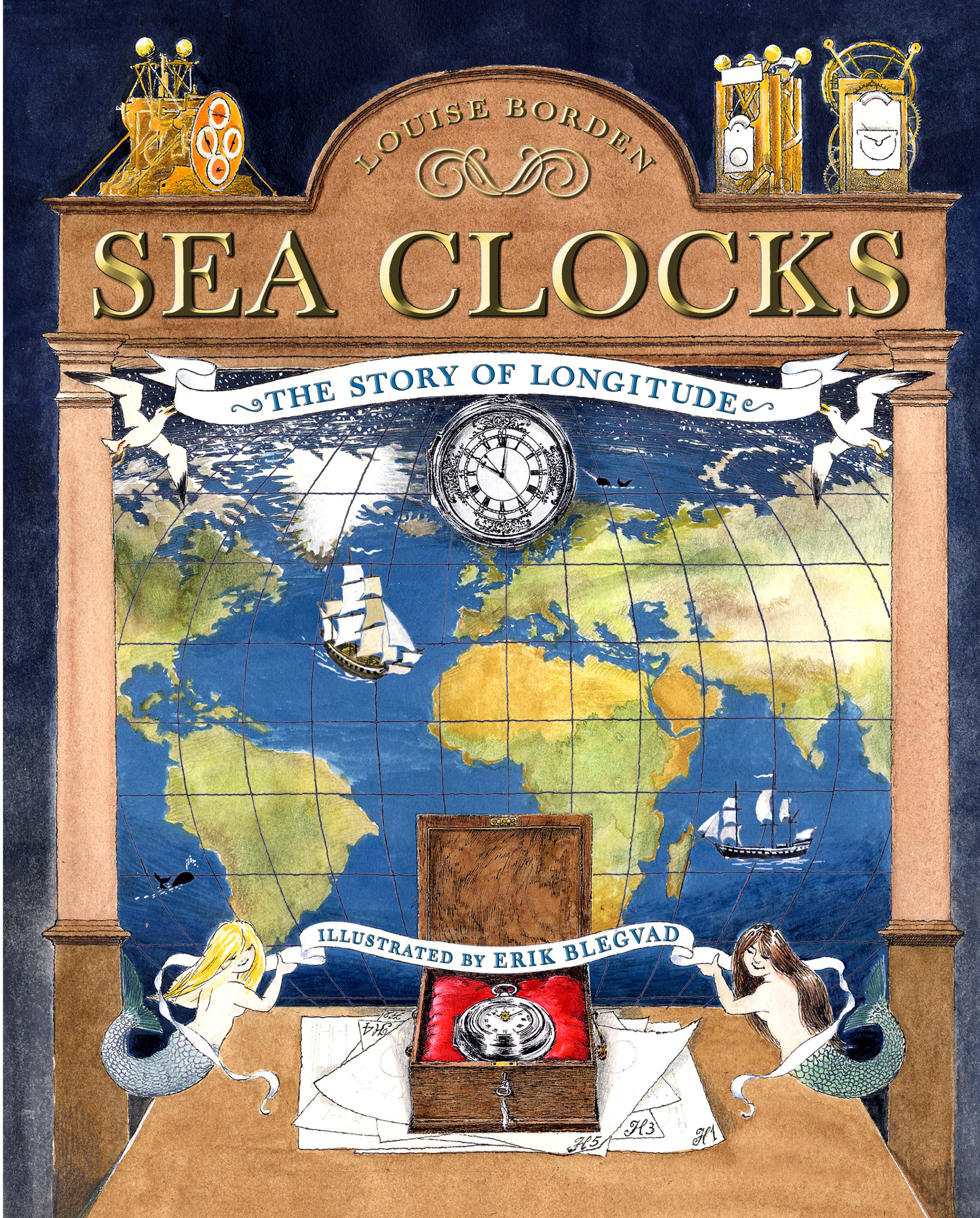Sea Clocks
The Story of Longitude
By Louise Borden
Illustrated by Erik Blegvad
LIST PRICE $19.99
PRICE MAY VARY BY RETAILER
Free shipping when you spend $40. Terms apply.
Buy from Other Retailers
Table of Contents
About The Book
"For hundreds of years ships had been sailing to places far and near without really knowing where they were!"
Sailors knew how to measure latitude, their location north or south of the equator, but they could not measure longitude, their location east or west of their home port. Because of this, many lives were lost worldwide. The key to solving this problem lay in devising a clock that could keep absolutely accurate time while at sea, unaltered by rough water or weather conditions. With such a timekeeper sailors would be able to know the time back at their home port and calculate the longitude. But no one knew how to design such a clock.
John Harrison (1693-1776), an Englishman without any scientific training, worked tirelessly for more than forty years to create a perfect clock. The solution to this problem was so important that an award of 20,000 pounds sterling (equal to several million dollars today) was established by the English Parliament in 1714. Harrison won recognition for his work in 1773.
Together with beautifully detailed pictures by Erik Blegvad, Louise Borden's text takes the reader through the drama, disappointments, and successes that filled Harrison's quest to invent the perfect sea clock.
Sailors knew how to measure latitude, their location north or south of the equator, but they could not measure longitude, their location east or west of their home port. Because of this, many lives were lost worldwide. The key to solving this problem lay in devising a clock that could keep absolutely accurate time while at sea, unaltered by rough water or weather conditions. With such a timekeeper sailors would be able to know the time back at their home port and calculate the longitude. But no one knew how to design such a clock.
John Harrison (1693-1776), an Englishman without any scientific training, worked tirelessly for more than forty years to create a perfect clock. The solution to this problem was so important that an award of 20,000 pounds sterling (equal to several million dollars today) was established by the English Parliament in 1714. Harrison won recognition for his work in 1773.
Together with beautifully detailed pictures by Erik Blegvad, Louise Borden's text takes the reader through the drama, disappointments, and successes that filled Harrison's quest to invent the perfect sea clock.
About The Illustrator
Erik Blegvad
Erik Blegvad was born in Denmark and studied at the School of Applied Arts in Copenhagen. Mr. Blegvad has illustrated more than one hundred children's books, including Twelve Tales by Hans Christian Andersen, Riddle Road by Elizabeth Spires, Hurry, Hurry, Mary Dear! by N. M. Bodecker, and Sea Clocks: The Story of Longitude by Louise Borden. The Blegvads divide their time between England, France, and Wardsboro, Vermont.
Product Details
- Publisher: Margaret K. McElderry Books (February 1, 2004)
- Length: 48 pages
- ISBN13: 9780689842160
- Ages: 7 - 10
Awards and Honors
- Kansas NEA Reading Circle List Intermediate Title
- SSLI Book Award Honor Book
- Texas Bluebonnet Master List
Resources and Downloads
Common Core Suggestion
High Resolution Images
- Book Cover Image (jpg): Sea Clocks Hardcover 9780689842160(6.2 MB)
- Author Photo (jpg): Louise Borden Photograph by Robert Flischel(0.1 MB)
Any use of an author photo must include its respective photo credit

















